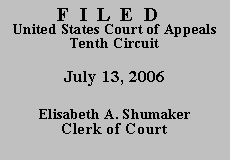

| BARBARA D. JOHNSON,
individually, and as Parent, Guardian,
and Next Friend of E.M., a Minor, Plaintiff-Appellant, v. DILLARD'S, INC., Defendant-Appellee. |
|
Plaintiff, who is African-American, alleged that she and her daughter were shopping in the "Juniors" department at a Dillard's store on January 7, 2004, when they had a confrontation with a sales clerk over an allegation of shoplifting. She and her daughter initially admitted in their deposition testimony that they were not prevented from either making a purchase or leaving the store, but they later filed affidavits asserting otherwise. The district court decided that the affidavits conflicted with prior sworn testimony, and presented sham issues of fact. The district court decided that plaintiff's allegations asserting claims under 42 U.S.C. §§ 1983 and 2000a were insufficient as a matter of law, and decided based on the deposition testimony that there was no genuine issue of material fact with respect to any of the other claims. Plaintiff attempted to add claims against defendant (in an untimely motion to amend the complaint), but did not attempt to cure the defects in her §§ 1983 and 2000a claims.
We review de novo a dismissal for failure to state a claim. Martinez v. Garden, 430 F.3d 1302, 1304 (10th Cir. 2005). We also review de novo a grant of summary judgment. Camuglia v. City of Albuquerque, 448 F.3d 1214, 1218 (10th Cir. 2006). We have considered the parties' materials in light of the record on appeal and the applicable law. We find no error, and affirm for substantially the same reasons as those set forth in the district court's thorough and well-written orders dated February 24, 2005, and September 27, 2005.
The judgment of the district court is AFFIRMED.
Entered for the Court
Circuit Judge
*. After examining the briefs and appellate record, this panel has determined unanimously that oral argument would not materially assist the determination of this appeal. See Fed. R. App. P. 34(a)(2); 10th Cir. R. 34.1(G). The case is therefore ordered submitted without oral argument. This order and judgment is not binding precedent, except under the doctrines of law of the case, res judicata, and collateral estoppel. The court generally disfavors the citation of orders and judgments; nevertheless, an order and judgment may be cited under the terms and conditions of 10th Cir. R. 36.3.